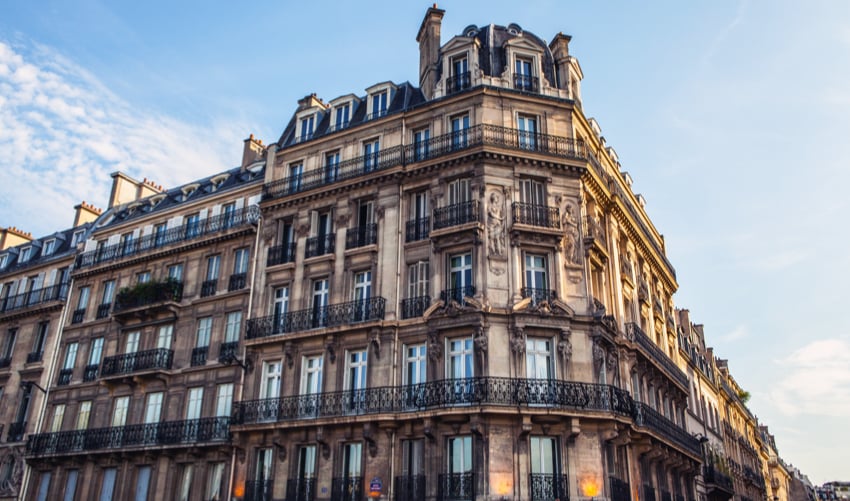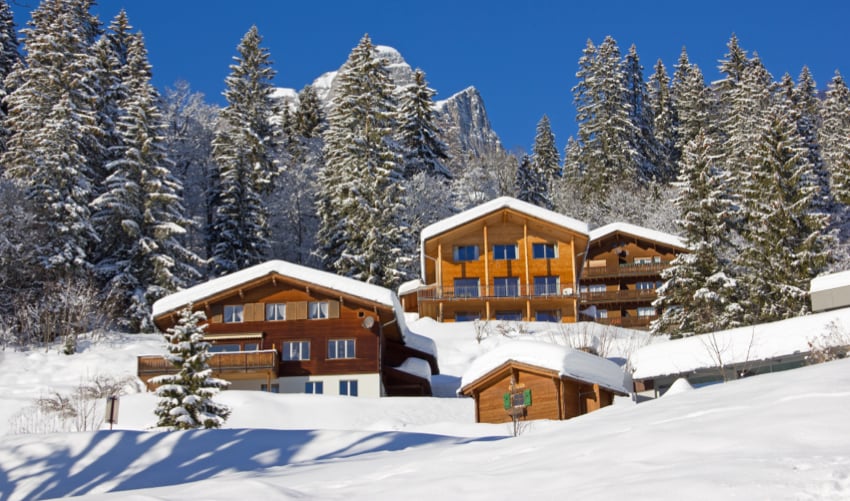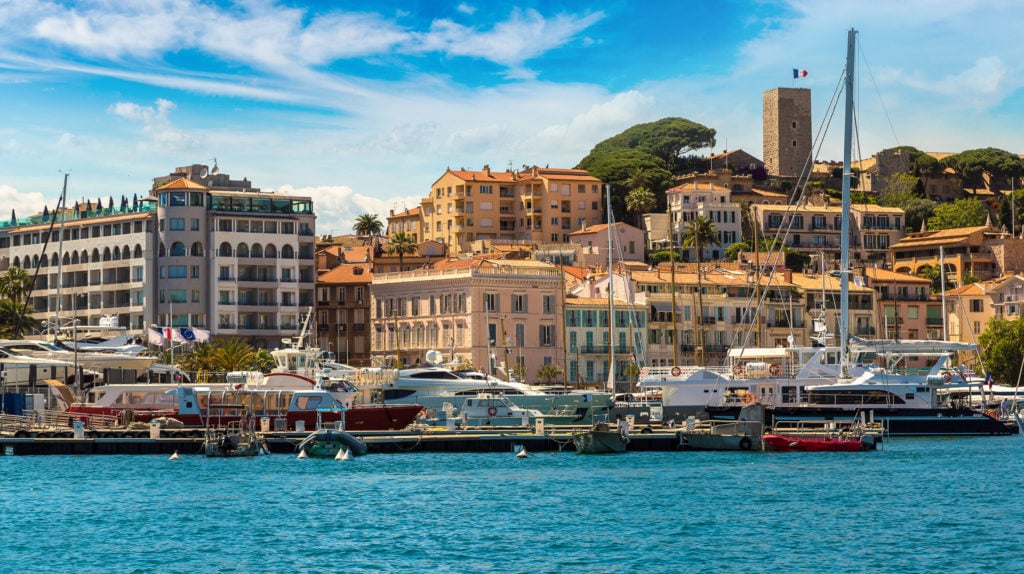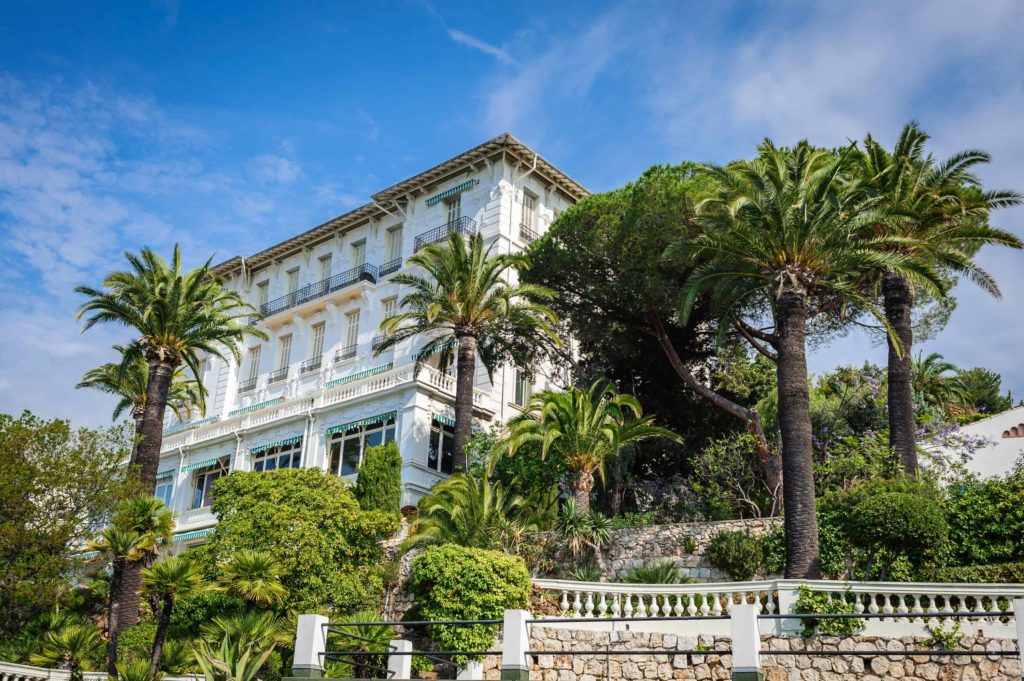It is safe to say that the French prime property market is one of the most active and most popular in the world today. The very fact that Paris is the prime tourist destination in Europe perfectly reflects the standing of France within Europe and the European Union. As a consequence, it is highly likely that the demand for French prime property will continue to increase.
Why do People Buy Property in France?
As we touched on above, the growing influence of France within the European Union is certainly a positive going forward. However, there are many other reasons why high net worth individuals continue to be drawn to French property such as:-
Value for Money
While there is a need to be aware of local property regulations, the vast array of different property types available across rural, coastal and inner-city France offer a number of investment opportunities. Indeed, the average property price in some of the more popular UK expat destinations is less than £150,000, compared to the average UK property price which is well in excess of £200,000. In this article, we will focus on the prime property market of France which takes in homes valued in excess of €1 million.
One area regularly discussed in relation to high net worth individual property investments is the Côte d’Azur, often referred to as the French Riviera. This takes in the ultimate in prime property across the likes of Monaco, Cannes and St Tropez. However, if you travel a little further up or down the coastline (or in-land) you will see a significant reduction in prices out with the central regions of Monaco, Cannes and St Tropez.
Transport Links
Aside from key airports such as Paris, there are a variety of additional airport links in areas such as Toulouse, Marseille, Nice, Bordeaux, Geneva, Strasbourg and Nantes to name but a few. France also has the infamous Eurotunnel which offers a very convenient route to the UK and a rail network to the rest of Europe. Many high net worth individuals are attracted by prime property markets which offer the opportunity for relaxation with key business hubs just a short plane/rail journey away. France certainly ticks these boxes!
Get in the Know
Subscribe to our newsletter
Climate and Lifestyle
It is difficult to know where to start with the French climate which offers the complete range from the snow-covered Alps to the sunkissed coast of the French Riviera. There is the sedate relaxed atmosphere of inner-city Paris to the jet-set lifestyle more associated with the Côte d’Azur. The gastronomic delights available across France together with the traditional outdoor lifestyle have made the country a very strong magnet for expats. Add to this the history, picturesque villages and the breathtaking architecture and you begin to get the picture. Whether looking to enjoy the welcoming climate in the latter years of your life, or expanding your property portfolio, France has a lot to offer.

The Caried French Prime Property Market
As we touched on above, the beauty of the French property market is the varied type of properties available and the wide array of different lifestyles. You can move from the hustle and bustle of the Paris business hub to the relaxed atmosphere of the countryside, the chilled climate of the Alps to the sunkissed French Riviera. France has long been a great attraction for ultrahigh net worth individuals from the UK and around the world. Some of the more popular destinations include:-
Paris
A recent report suggested that Paris now has a more ultra-high net worth individuals living in the area than London. The fact that Paris is the number one European tourist destination, and has been for many years, is a very strong magnet for property investors looking at prime property destinations.
Reports suggest that Paris will be among the best performing real estate markets in 2019 with growth a of 6%. It is safe to say that Paris will continue to be one of the more popular prime property markets with high net worth investors.
Côte d’Azur (Otherwise Known as the French Riviera)
The French Riviera is an area of France which needs no introduction – it has been a magnet for the rich and famous for many years. The region is situated on the Mediterranean coast of south-eastern France and takes in the likes of St Tropez, Cannes as well as the independent state of Monaco. Recent times have seen a greater focus on the French Riviera as the standing of France within the European Union continues to blossom. Interestingly, while the ultra-prime property market of the French Riviera tends to grab the headlines, it does actually offer a very broad range of investment opportunities.
It is difficult to know where to start when looking at the French Riviera, the prime market hotspot of St Tropez, the world-renowned film festival of Cannes and then we have the likes of the Monaco Grand Prix which is a sight to behold. Like many of the French prime property markets, the French Riviera has also benefited from a reduction in wealth taxes and a more welcoming approach to foreign investors.

The Alps
Many experts would describe the Alps property market as one of the leading prime property markets of the world. Due to the relative lack of luxuries ski chalets for sale, there is significant demand when properties are available with many not even making it to a public listing. This is an area of the world which has all of the traits of a successful prime property market, the lifestyle, privacy, climate as well as a property market which has held its value extremely well over the years. It is fair to say that the Alps property market offers a very different lifestyle and a different culture to those of Paris and the French Riviera.
The views are absolutely stunning, you are literally on the doorstep of Switzerland and Italy and while private and secluded, you are just a short journey away from France’s leading business hubs. While in the past French national banks have been a little reluctant to deal with foreign investors, the historical socialist approach has been diluted of late by President Macron, which has added to the attractions of the Alps.
Major Cities of France
There is no escaping the fact that Paris, Côte d’Azur and the Alps dominate the French prime property market. These are areas of the country which have long been popular with both domestic and international high net worth individuals. However, there are many other major cities of France which have various business, cultural and lifestyle attractions such as:-
• Marseille
• Lyon
• Toulouse
• Nice
• Nantes
• Strasbourg
• Bordeaux
Even though the French Riviera is renowned for ultra-expensive prime property there is a marked reduction in prices as you move towards the outskirts. This is a natural progression of ultra-prime property markets which tend to expand over time as investors look for not only competitive prices but a greater degree of supply. If you are considering a prime property purchase in France we are more than happy to discuss the current property hotspots and up-and-coming markets with you.
What are the Mechanics and Legal Obligations When Buying a Property in France?
The mechanics of acquiring a property in France are fairly straightforward but there are a few more parties and stages than, for example, the UK system. There are also various legal obligations which need to be fulfilled before a property purchase is complete. We will now take a look at the stages of acquiring a property in France:-
Offer Accepted – Just the Start!
While certainly an important part of the purchase process the acceptance of the buyers offers is just the start of the process. There are numerous ways in which you can make an offer including in person, via phone, via email or through an appointed third party.
Appointing a Notary
All French property transactions require the appointment of a notary which is a legal specialist acting on behalf of the state. The role of the notary is to ensure the transaction is legal, all taxes and charges are collected, and each party is aware of the consequences of signing an agreement. In some cases, there can be more than one notary if the seller chooses to appoint their own.
Completion of a Preliminary Contract
As we move towards the business end of a property purchase the notary will draw up a preliminary contract after receiving the relevant paperwork from the seller. This paperwork will include the title of ownership, confirmation the building abides by legal regulations and a report on issues such as asbestos, electrical wiring and any other potential risks. If a property purchase was to be annulled then it is likely it will occur at this stage.
Payment of Deposit
After the preliminary contract has been signed we then moved towards the transfer of a deposit which is usually between 5% and 10% of the purchase price. The deposit is paid to the notary and will be held in an escrow account pending completion of the transaction.
Cooling Off Period
There is a legally binding 10 day cooling-off period which relates solely to the buyer and allows them to walk away from a purchase. There is no requirement to justify a change of mind and if the purchase is cancelled they will receive a 100% refund of their deposit.
Arrange Funding
We will cover the French mortgage market in more detail later in this article but the next stage in the purchase process is to secure funds to complete the purchase. In reality, high net worth investors will already have a funding agreement arranged in principle. At this point, there is the opportunity to acquire the property in the individual’s name or via a company. In many ways it can be simpler for overseas investors to utilise a company structure – did you know that trusts are not recognised under French law?
It is worth noting that many high net worth individuals will look to acquire French prime property within a company structure. Indeed, in Monaco, this is the norm with local laws offering an enhanced degree of privacy via this method. It will obviously vary from case to case but it is something worth discussing with your mortgage adviser. It is worth noting that the process of applying for a domestic mortgage can take up to 2 months to agree with a further 10 days to accept the offer.
French Mortgage Terms
There are a number of reasons why some foreign investors prefer to use private banks as opposed to traditional French lenders. One of which is the French mortgage affordability calculation which denotes that total outgoings must not exceed 33% of an applicant’s gross income. There are occasions where this can be extended slightly but the 33% figure is the more cautious option when calculating potential funding limits.
As private banks are regulated in a very different manner to traditional French banks there is greater flexibility with regards to maximum funding. This could be anywhere between 60% of the purchase price or in some extreme cases up to 100%. This perfectly reflects the different approach taken by private banks when compared to traditional mortgage lenders.
Drawing up the Final Deed
As we move towards the conclusion of the French property purchase process the notary will draw up what is referred to as a final deed. This is only possible after all legal and administrative checks have been successfully concluded. In the majority of cases, the timeline between the preliminary contract and the final deed can be anything up to 4 months.
Payment of Funds, Executing Final Deed and Settlement of Tax Liabilities
The next stage is to transfer the remaining purchase funds into an escrow account controlled by the notary. The notary will ensure that various fees and taxes are withheld from these funds with the balance transferred to the seller within a couple of weeks. During this stage the final deed will be signed by both parties, with their relevant advisers present, and witnessed by the notary. At this point the seller will also settle any tax liabilities under instruction from the notary. This then brings the role of the notary to a conclusion.
Collection of Keys
It is useful to see the stage by stage process of a property purchase in France. We have seen many high net worth investors automatically assuming a like-for-like scenario with their homeland regulations. When you consider that ultra-prime property can change hands for tens of millions of euros there is no room for error. As a consequence, it is vital that you appoint a representative to work on your behalf with a full and deep knowledge of the French legal system and property purchase process.

Taxes and Charges When Buying French Property
As you will gather from the step-by-step process detailed above when buying French property the notary is central to the whole process. The majority of transaction fees are the responsibility of the buyer although the seller may have to pay tax on the sale. In basic terms the notary fee is made up of the following charges:-
Actual Notary Fee
This is the actual fee paid to the notary and is calculated on a sliding scale ranging from 0.814% up to 3.945% depending on the sale price. While not necessarily seen as a “tax” VAT is also charged on the notary fee at 20% – the standard European rate.
Stamp Duty in France
The stamp duty on properties more than five years old will range between 5.09% and 5.8% in different areas of France. Relatively new properties which are less than five years old will attract stamp duty of 0.7% (with a 20% VAT charge).
VAT
When acquiring a property in France it is advisable to check if the price includes all taxes. There may well be VAT to pay on new/off plan properties.
Additional Fees
While the notary fee, stamp duty and VAT are the more prevalent charges when acquiring property in France, the final fee may well include charges relating to land registry, mortgage arrangement and property security. This again highlights the need to work with a mortgage adviser who has experience of the French property market and all of its often unique intricacies.
Fees Associated with Selling a Property
While the above fees are the responsibility of the buyer, as we mentioned above, before the sale proceeds can be transferred to the seller any sales tax liabilities and other charges will need to be addressed. These may include:-
Agent Fees
The standard fee for a real estate agent in France tends to be between 5% and 10% of the sale price. If an agent is not formally appointed to act on the transaction the notary may well charge an agent’s commission.
Risk Assessment Reports
If the property requires a risk assessment report to cover for example dry rot, the charge for this work will be taken from the sale proceeds.
Capital Gains Tax
The current rate of capital gains tax is 34.5% which is made up of 19% income tax and 15.5% social levies. There may well be additional capital gains tax to pay above and beyond the 34.5% on excess of gains. French residents do not pay capital gains tax on their main residence although for foreign investors the situation needs to be clarified.
How to Approach Lenders, What is Important to Them, What are the Rules?
Historically, mainstream French banks have been a little reluctant to finance the purchase of French property by international investors. This has softened to a certain extent under the direction of President Macron but there are various tax and legal implications which need to be considered. As a consequence, many high net worth individuals will choose to acquire French prime property within a company structure. This can in some cases offer an enhanced degree of legal protection in the event of challenges further down the line but advice must be taken to ensure the correct action is taken.
International private banks were very quick to fill the historic void left by French banks with regards to international investors. While this situation has improved a little with the reduction of wealth taxes and a more welcoming approach to international investors, private banks are still extremely active in relation to French property acquisitions. Over the years we have dealt with a number of traditional French banks and an array of international private banks to secure the best terms for our customers. It is also worth noting that standard practice for many French mortgage lenders is a repayment mortgage which does not always fit in with the cash flow requirements of active high net worth investors.
What is the Availability of Mortgages?
As we touched on above, there has been a significant softening towards international investors and a more welcoming approach towards high net worth individuals. The market for international investors is not as liquid as the likes of the UK (although Monaco is an exception) but due to a mix of domestic French banks, French private banks and international private banks, mortgage availability has improved markedly. There are potential tax implications to consider regarding residents and non-residents acquiring property in France. Read more about French mortgages for UK residents. There also needs to be a clear understanding of French mortgage regulations and the process as detailed above.
While lending to international investors is often considered an additional risk compared to domestic investors in France, it is worth taking into account the current European Central Bank base rate. This rate is currently 0% and as a consequence there are some very attractive euro denominated mortgage opportunities available. Any potential premium charged to international investors will certainly be diluted when you bear in mind that UK base rates are currently 0.75%. Obviously, base rates will change going forward but there are certain attractions towards euro denominated mortgage funding at the moment.
Personal Name or Via a Company
There is no one size fits all when it comes to purchasing prime property in France, do you go down the personal ownership route or the company structure? The truth is that it will depend upon your specific scenario, residency, taxable French income and company profits. It is fair to say that a number of high net worth investors acquiring prime property in Paris, the Alps and the Riviera for example have made use of the company ownership option. Indeed there are added benefits to acquiring Monaco prime property within a company structure due to the states strict privacy laws. There are also potential tax implications if you take the personal ownership or company ownership routes. As a consequence, it is vital that you take advice at the earliest opportunity and take the most appropriate option.
Effect of Wealth Tax
Prior to the election of President Macron the French the wealth tax system was a serious barrier to entry for many high net worth investors. It is safe to say that the historic social leanings of France have been counter-balanced somewhat by the election of President Macron. This has led to a significant reduction in the tax liabilities of foreign investors. It is fair to say this reduction in the tax liability of high net worth individuals has been extremely positive for the French prime property market.
As a company, Enness arranged French property loans in excess of €297 million back in 2017 and the recent wealth tax changes will further strengthen opportunities going forward. Whether looking at property regulations or wealth tax liabilities, it is imperative that high net worth investors are fully aware of the often fluid statutory framework on the ground. We have an extremely strong presence in Monaco and as a consequence are aware of actual and likely future statutory changes. To be forewarned is to be forearmed.
Using Assets Under Management/Pledging
The simple fact is that the greater the security you can offer a mortgage lender the more preferential the likely mortgage interest rate. When all said and done, taking out the intricacies of individual mortgage funding applications it all comes down to the risk/reward ratio. Therefore, the pledging of assets against a mortgage loan or utilising AUM (assets under management) arrangements can be extremely beneficial for all parties.
Asset Under Management
This is a service which is often promoted by private banks whereby they will provide mortgage funding at an attractive headline rate on the proviso that the customer transfers investments to their AUM division. To all intents and purposes this is a type of security because the funds will be retained under management while the mortgage is live. However, we have arranged numerous funding agreements where the income from assets under management covers a significant part of monthly mortgage interest charges – a win-win scenario.
The level of assets under management required to secure the best mortgage rate will be considered on a case-by-case basis. As with the majority of high net worth individual mortgage applications, there is no one size fits all. In some cases we have agreed a significant AUM transfer to secure the best possible rates while in other cases additional collateral or income streams may suffice.
Our Top Tips to Securing Funding for French Property Purchases
It is fair to say that the French property purchase process is very different to that in the UK as is the availability of mortgage funding to international investors. There are a number of issues to be aware of and our top tips to securing funding for French property purchases are as follows:-
• Do not assume a like-for-like scenario with your homeland property regulations
• Ensure your mortgage adviser is aware of the local regulations and legal obligations
• Finding a mortgage lender that will acknowledge global assets and global income streams can prove beneficial
• AUM arrangements can be an extremely good use of investments and create a valuable income stream
• Where possible utilise local and global assets to reduce the risk/reward ratio and headline mortgage interest charge
• Local and international private banks tend to offer a more flexible and bespoke service
• It is vital that you take advice about personal/company ownership when acquiring property
• Legal protection can be very different in France when compared to the likes of the UK
• It is imperative that you stay up-to-date with changes in the French wealth tax system
Here at Enness we value our independent status which gives us the opportunity to speak with more than 500 international lenders. We have a strong relationship with numerous traditional French banks and private banks which complements our international connections. Our office in Monaco is an integral part of our long-term aspirations towards the French property market. We have built up a very impressive circle of contacts with regards to funding as well as legal/regulatory issues.
The vast majority of the high net worth individuals we act for tend to have non-traditional financial landscapes. These can take in global assets as well as multiple income streams often via multiple currencies. It is very important to utilise both global assets and global income streams to secure mortgage funding for a French property purchase. The greater the income/assets acknowledged the more competitive the headline mortgage interest rate which has a direct impact on short, medium and long-term cash flow.
Special Situations
The French property market has attracted more than its fair share of interest in recent times. The profile of Paris continues to grow, the Riviera is ever more popular and Monaco, well that stands head and shoulders above the rest. This growing interest has seen investors from all around the world looking at French prime property, creating a number of special situations.
Can International Buyers get a Mortgage?
While it is fair to say that the French mortgage sector is now more welcoming of international investors there are still drawbacks, restrictions and limitations. As a consequence, due to our independent status we can discuss competitive rates with more than 500 different lenders both within France and internationally.
Historically, the vast majority of our customers tend to be better suited by private banks which are more flexible and welcoming of international investment. The ability to build bespoke funding arrangements from the ground upwards is priceless. This ensures that we are able to structure a mortgage funding arrangement around the client’s specific financial landscape. It is also worth noting that traditional French banks tend to favour repayment mortgages. This does not always fit well with high net worth investors who may have specific cash flow targets/restrictions.
There are also other issues to take into consideration such as UK base rates which currently stand at 0.75% and European Central Bank rates which currently stand at 0%. This current difference does help to negate any interest premiums introduced by traditional French banks. However, it goes without saying that base rates change on a regular basis with the current economic climate.
Commercial
There are a number of areas where for example the UK and French legal systems can be in conflict. When it comes to the acquisition of commercial real estate in France it is strongly recommended to take advice prior to beginning the process. A number of foreign investors looking at the commercial property will raise funds using foreign company operations which abide by regulations and laws in their homeland. However, there are a growing number of traditional French banks which are enthusiastic when it comes to lending funds to expats and foreign-based companies. Whether these are as flexible as foreign investors may require is another question.
As a consequence, the private banking sector/niche lending market has again stepped into the void to offer a liquid market and one which is flexible. Many people automatically assume that the legal basis of acquiring property in France is the same as their homeland when very often this is not the case. We have strong relations with traditional French banks, private French banks as well as international lenders of all persuasions. This allows us to create bespoke arrangements which will dovetail with the client’s financial situation, legal basis and funding requirements.
Bridging Finance
We have dealt for a number of customers looking to acquire French prime property while disposing of other property assets. This is where bridging finance can be extremely useful, bridging the time gap/finances between the sale of a property and acquiring long-term mortgage funding on another. As we mentioned above, there are some subtle differences regarding the French legal system compared to the likes of the UK. The situation can differ significantly for residents and non-residents and for those acquiring property in their own name or a company structure. Therefore, historically we have tended to use the services of international private banks when looking to raise bridging finance at competitive rates.
As with all mortgage funding applications, they will be considered on a case-by-case basis with many requiring some form of bespoke bridging finance structure.
Summary
There is no doubt that the French prime property market is one of the more popular around the world. Paris, the French Riviera and the Alps may well grab the headlines with regards to property prices/lifestyles but there are many other opportunities across the length and breadth of the country. Even though the French banking sector is now more welcoming of international investors under President Macron, there are still challenges and often legal technicalities to take into consideration.
As a consequence, the majority of our mortgage applications tend to be focused on the international private banking sector. There are occasions where we are able to use our very strong traditional French bank connections but where there is a bespoke element required we tend to find private banks/specialist lenders are more flexible. The legal/tax systems associated with French property purchases can be challenging and complex. This is where we are also able to utilise our connections within the French property/financial sectors for the benefit of our customers.
It is imperative that local property regulations are taken into consideration as well as any long-term tax/legal implications.





